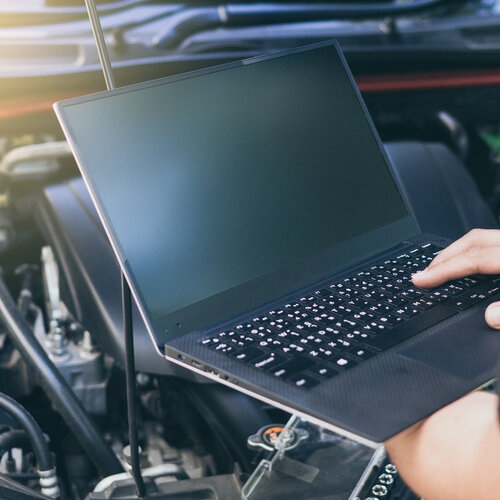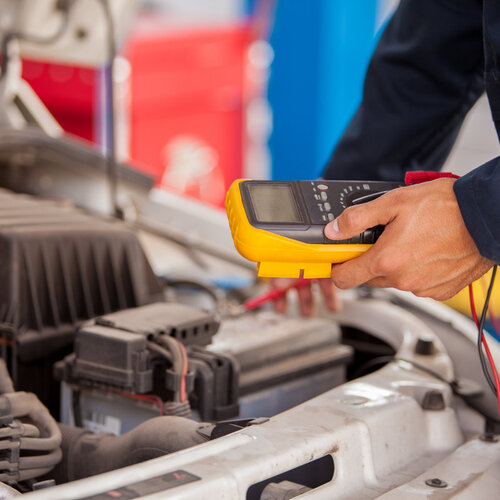
Taking Care of Your Car
You put gas in your car as needed, and have the oil changed every 5,000 miles, get the tire pressure checked. And that’s all that a car will need, right? What about a car tune-up? What is the purpose and why is a tune-up necessary?
The purpose of a car tune-up is to have your mechanic check all the mechanical and computer systems of a vehicle that can have an effect on the combustion process and to adjust them as needed. A car tune-up keeps a car in top running condition and ideally eliminates any breakdowns. Having a car tune-up is just as important as keeping the tires rotated and the air pressure checked.
Does a tune-up make your car run better?
Just like you have regular dental appointments, eye exams, and medical check-ups to stay healthy, a car tune-up does the same thing for your car. And just like your eyes grow weaker with age and your body changes over the years, the engine in your car can begin to lose its efficiency. A professional car tune-up can catch these minor issues and adjust things to slow that degression down or stop it altogether.
So if your car has been getting sluggish, then yes, you’ll likely notice an improvement in how it runs and in its gas mileage. However, if you get regular car tune-ups as recommended, you may not notice any change. In addition to improved gas mileage, your car will be safer on the road, and this is an investment that protects you, your family, and others around you while driving. However, the biggest benefit of a car tune-up is the extended lifespan of your car! And when you do get ready to trade it in on a new car or sell it outright, having the paperwork to show you’ve had regular car tune-ups, oil changes, and tire rotations just adds to its value.
What are the signs you need a tune-up?
To determine when to tune up your car, the following are the basic tips:
- Follow the recommendations for car tune-ups; the manufacturer will typically provide a suggested timeline by mileage.
- Keep track of the mileage and review the owner’s manual that came with your car. Monitoring the miles per gallon can show you when there is a dip in fuel efficiency. When the MPG (miles per gallon) drops by 10%, it is time to get a car tune-up, even if the manufacturer’s suggested mileage doesn’t agree. This could indicate there is something going on within the engine or fuel system that should be inspected and addressed.
- If your car is acting or sounding different, stalling when you stop, or is hard to start, it is time for a car tune-up – again, regardless of the manufacturer’s mileage recommendations.
- If you notice anything different in the braking system or steering, your car should be taken in for the mechanic to examine your car. While these are not necessarily car tune-up matters, they are safety issues and should be addressed and fixed as soon as possible.
It should be noted that while the manufacturer’s recommendations should be followed, how you drive your car can also affect it. If you haul heavy loads or put a high number of miles on the car in a short period of time, it will need car tune-ups more frequently than the manufacturer’s recommendations.
How will a tune-up improve gas mileage?
While every auto shop will have a different process and routine to performing car tune-ups, the basics are pretty much the same. You should make sure to let the mechanic or service writer know of any issues or problems you’re having so they can make a special note to check certain things.
- The basic routine is to thoroughly inspect the car engine from top to bottom, front to back. This includes replacing any parts that are faulty or worn.
- For newer vehicles, the mechanic will reset the computer that controls the fuel-to-air mixture.
- They will replace the spark plugs, spark plug wires, and coil boots.
- They will clean the throttle body and intake area, and replace the air filter and fuel filter to improve the fuel flow.
- Some vehicles will get a new Gasoline-Direct-Injection if applicable.
Additional things that may be addressed by some auto shops are the oil change, transmission flush, and changing the windshield wipers.
How long does a car tune-up take?
This can vary from car to car, but the average time can range from two hours to four hours. If any problems were found, it could take longer to make any repairs or replacements needed. Newer, modern cars that are computerized do not take as long for a car tune-up as older cars with more mechanical parts.
Does a tune-up include tire rotation?
No, this is separate from a car tune-up, but you can request the service be done while you’re there. While most auto shops can do a tire rotation, there are some that may not be equipped and recommend that you take the car to a tire center.
Is an oil change the same thing as a tune-up?
No, the oil change is something that should be one every 5,000 miles for most cars. A car tune-up is typically done one once a year, or more frequently under certain circumstances.

In Closing – Where can I get a tune-up for my car?
Most auto shops offer car tune-up services, and if you have a regular mechanic, that would be the best place to take the car. Many oil and lube shops offer car tune-up services, and you can always take it to the dealership where you purchased the car as well.
